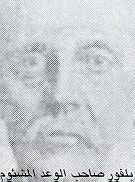
Palestine
Oasis

![]()
CONFLICTING PROMISES
During the First World War, Palestine like many other countries was under the rule of the Ottoman Empire. The Arabs, anxious to gain their independence, joined the Allies against Turkey in return for promises, in 1915 by Great Britain, to be allowed independence at the end of the war.
In 1916, however, Britain, in complete contradiction with her earlier agreements with the Arabs, made a secret agreement with France and Russia, known as the Sykes-Picot Agreement, by which the Allies would split between themselves the Arab countries a part of Turkey. In 1917, in an attempt to keep Communist Russia in the war on the side of the Allies, amongst other reasons, Britain, hoping to use the strong Jewish influence in the Bolshevik party, issued a letter written by Arthur Balfour, the then British Foreign Secretary and addressed to Lord Rothschild stating:

Arthur Balfour
"His Majesty's Government view with favour the establishment in Palestine of a national home for the Jewish people …., it being clearly understood that nothing shall be done which may prejudice the civil and religious rights of existing non-Jewish communities in Palestine." To refer to the Arabs who constituted, at the time, 92% of the population of Palestine as the non-Jewish communities is not merely preposterous but deliberately fraudulent.
This extraordinary and contradictory letter, later dignified by the title "Balfour Declaration," written by a British Foreign Secretary to an individual British Jew, was later to become the basis of the modern Jewish claim to Palestine. It is clear that this declaration has no shred of legality, under international law, and it is worth pointing out the following facts:
1. In 1917 the Jews constituted 8% of the 700,000 population of Palestine.
2. When the Declaration was made, British troops had not yet set foot on Palestinian soil and Britain did not have any claim, by right or even conquest, to Palestine to be able to give it away to a third party.
3. The famous British historian, Professor Arnold Toynbee, described the British action in issuing this Declaration in these words: "We were taking it upon ourselves to give away something that was not ours to give. We were promising rights of some kind in the Palestinian Arabs' country to a third party."
4. Arthur Koestler, the well-known Jewish writer, summed up the Balfour Declaration as a document in which "one nation promised a second the country of a third."
Last updated 1 January 2000 Written and
Designed By Rafic Adnan El-saleh
Names, pictures and logos are the copyright ®1998 by Organization Name Palestine Oasis
(C)Copyright 1998 Palestine Oasis. All rights reserved.